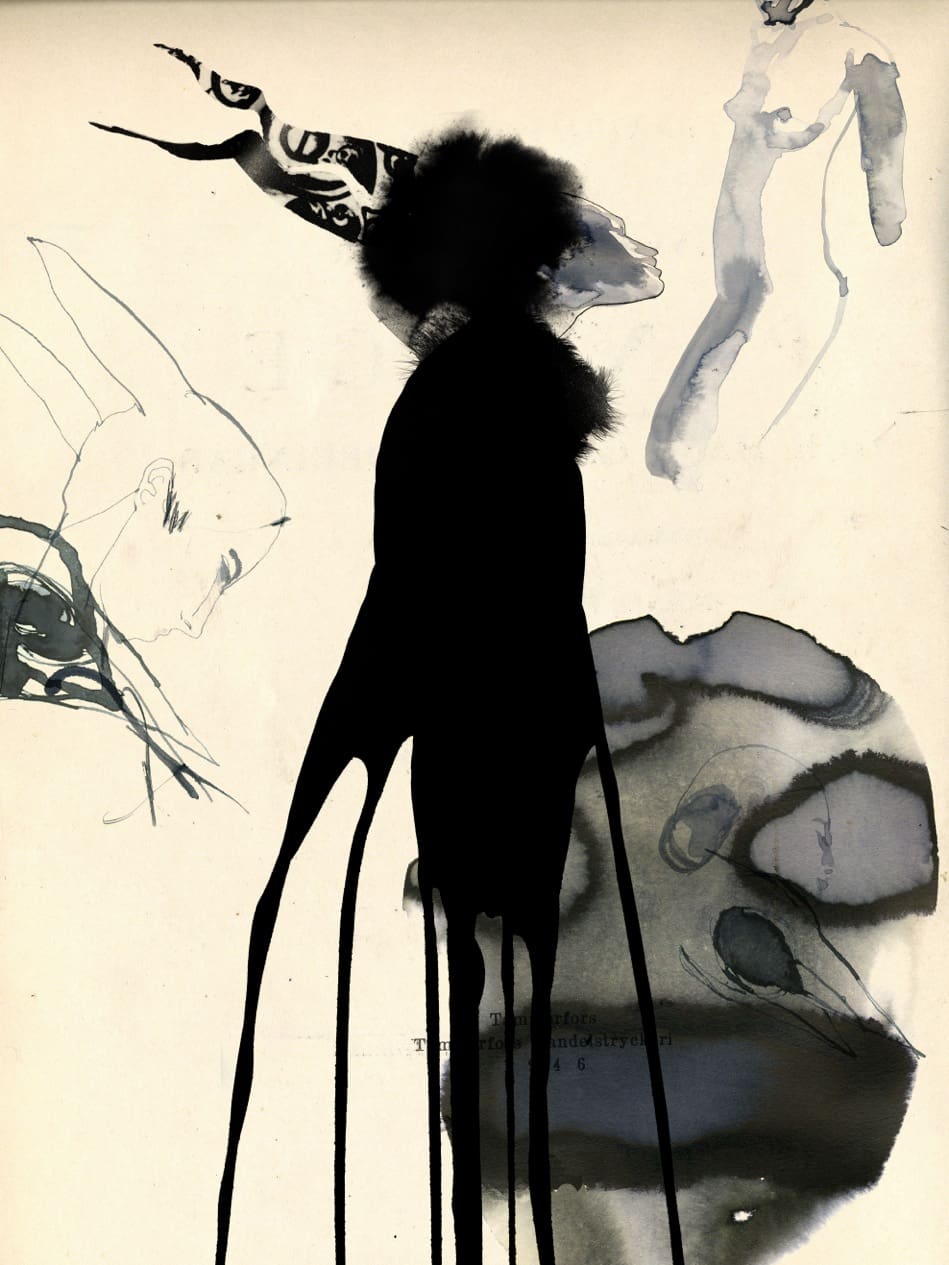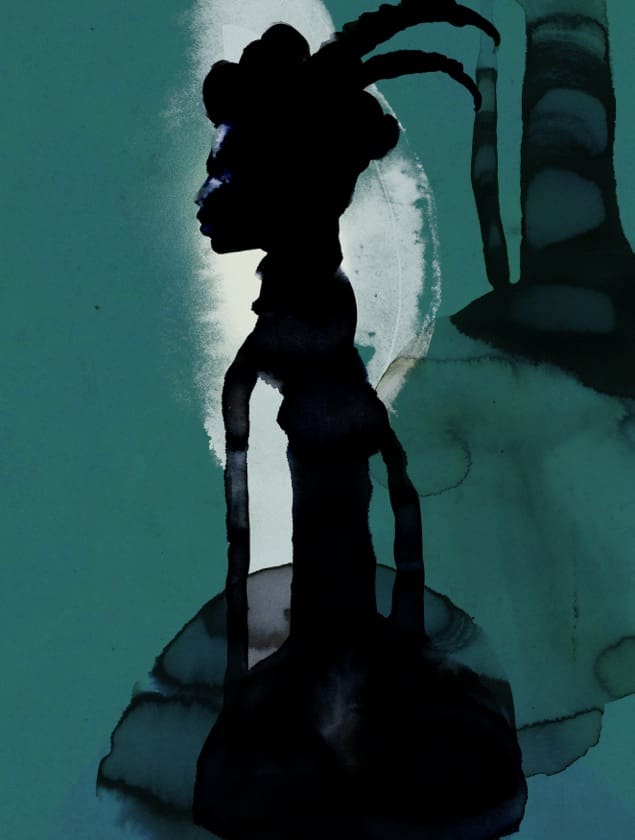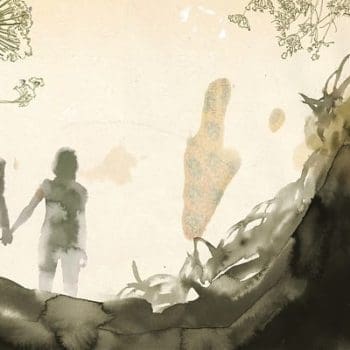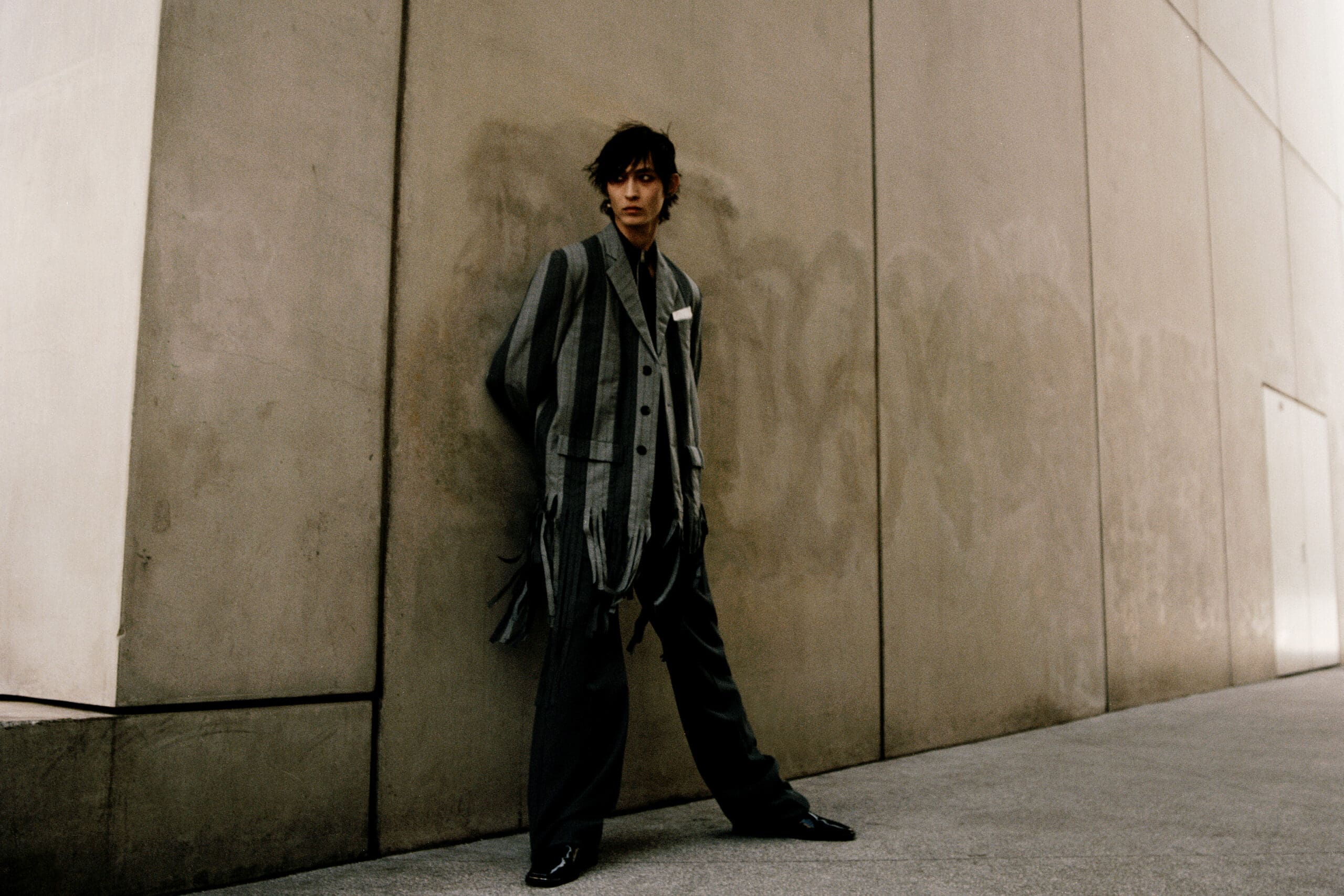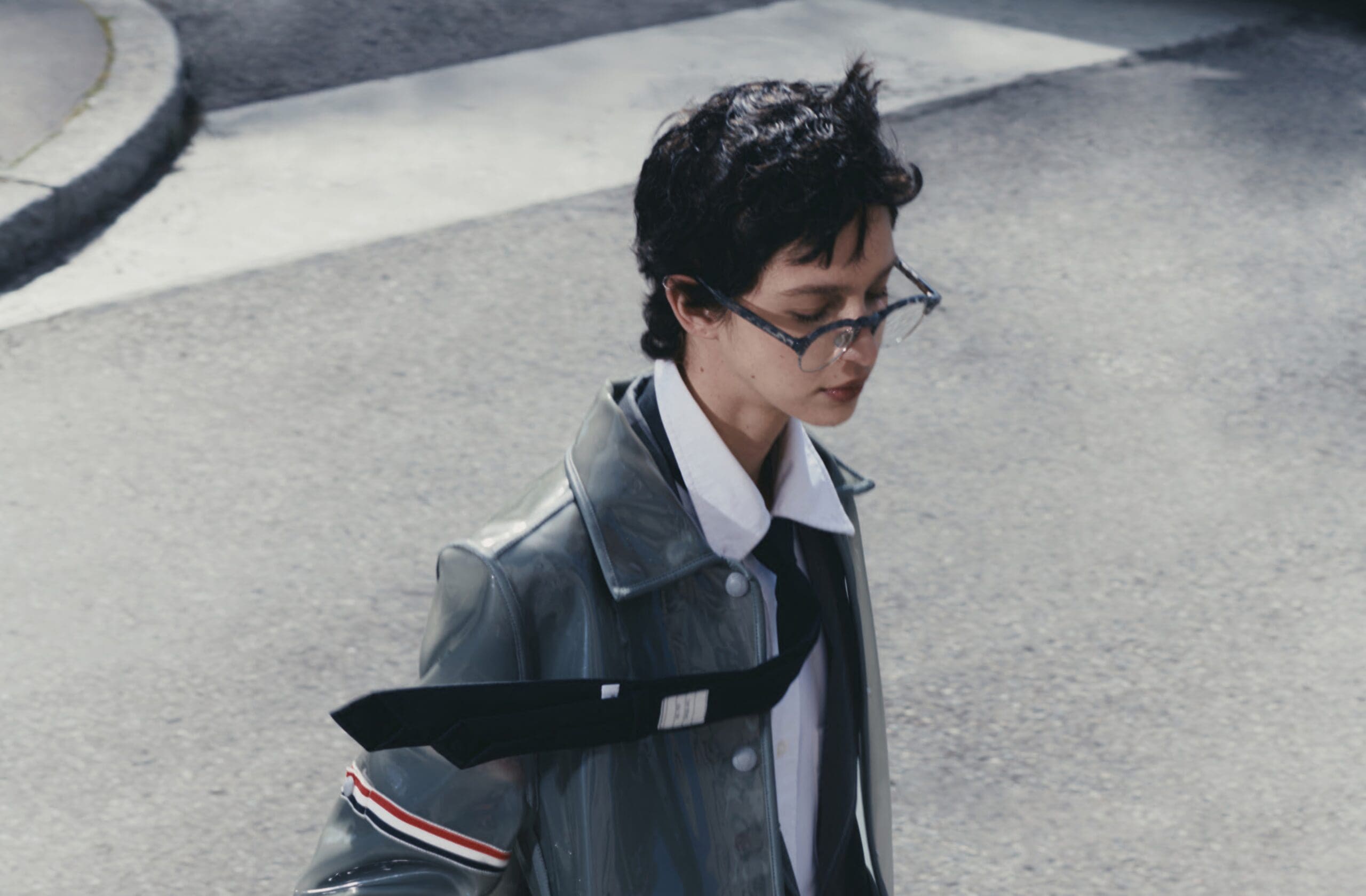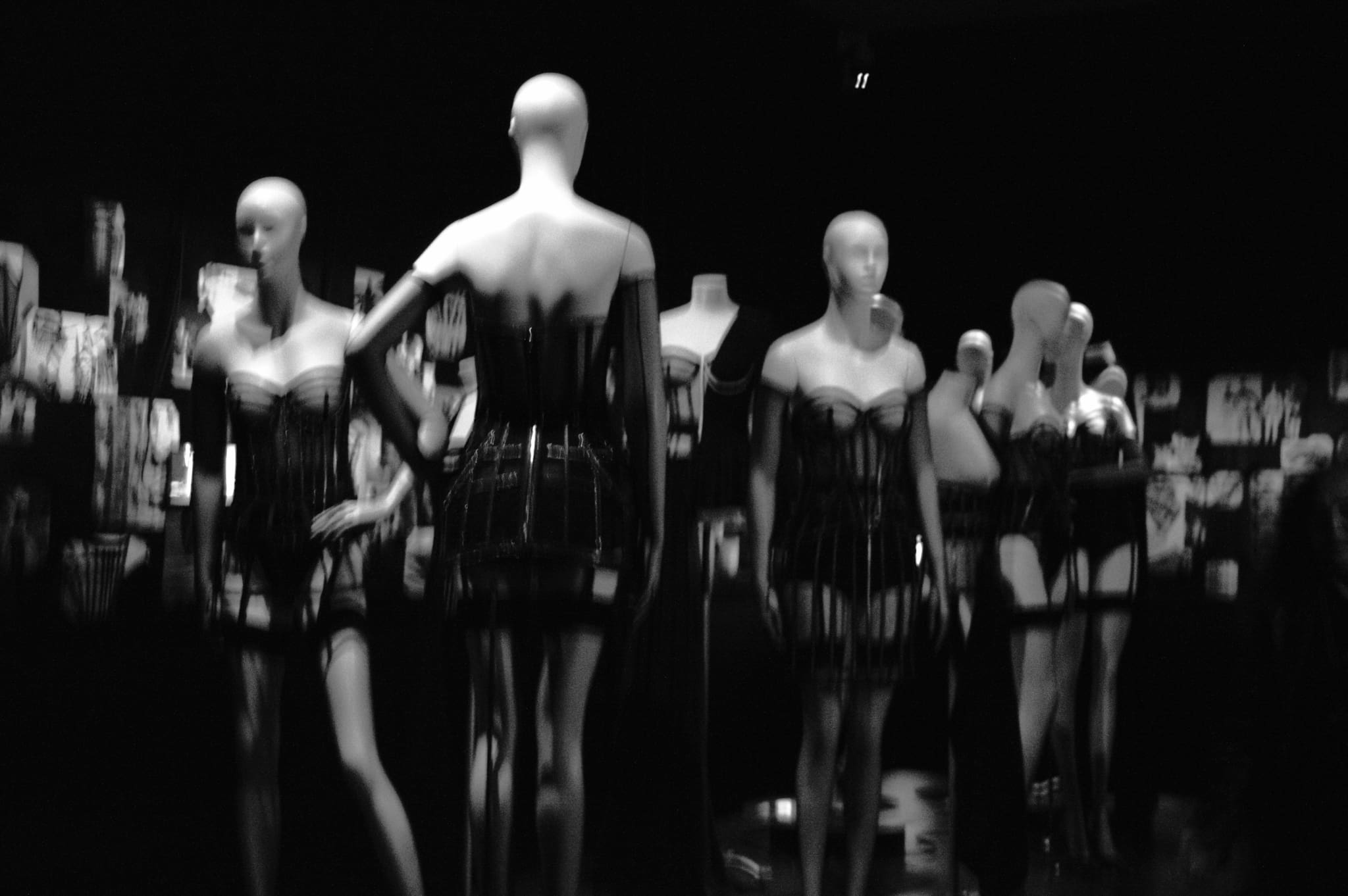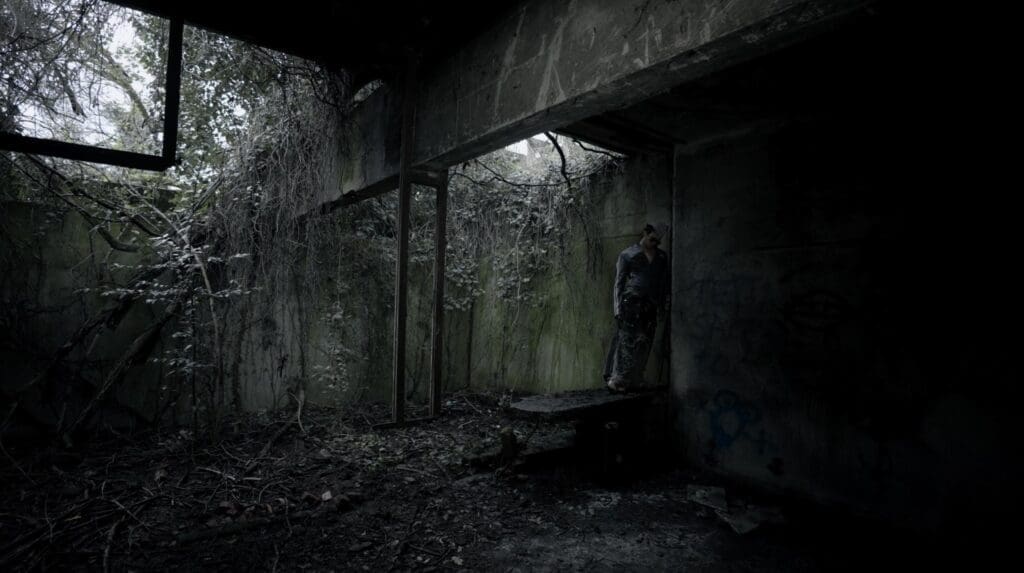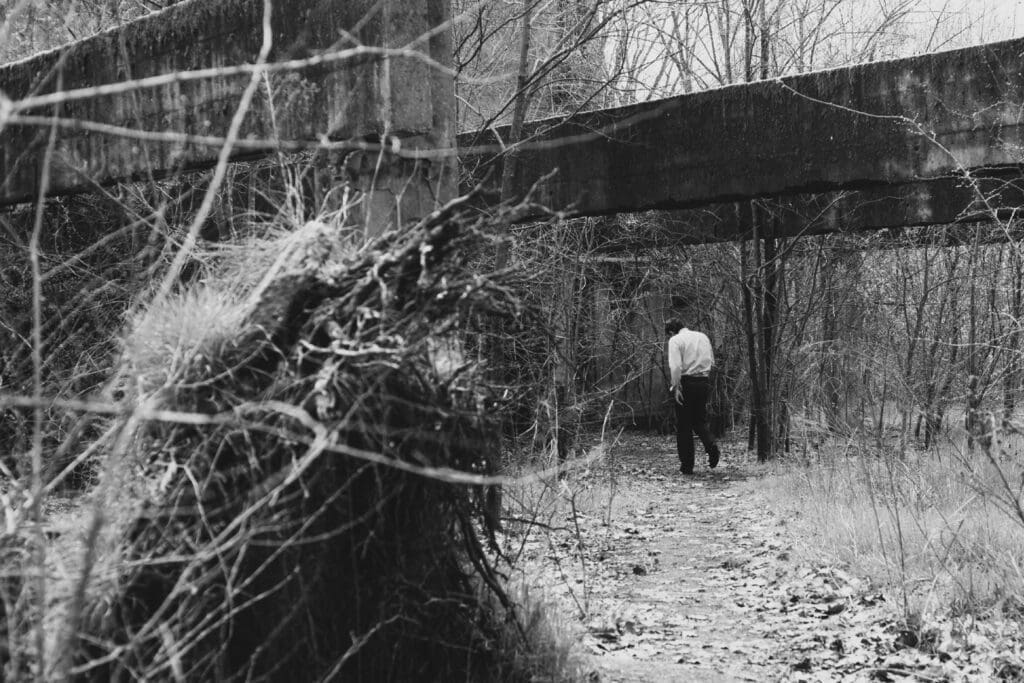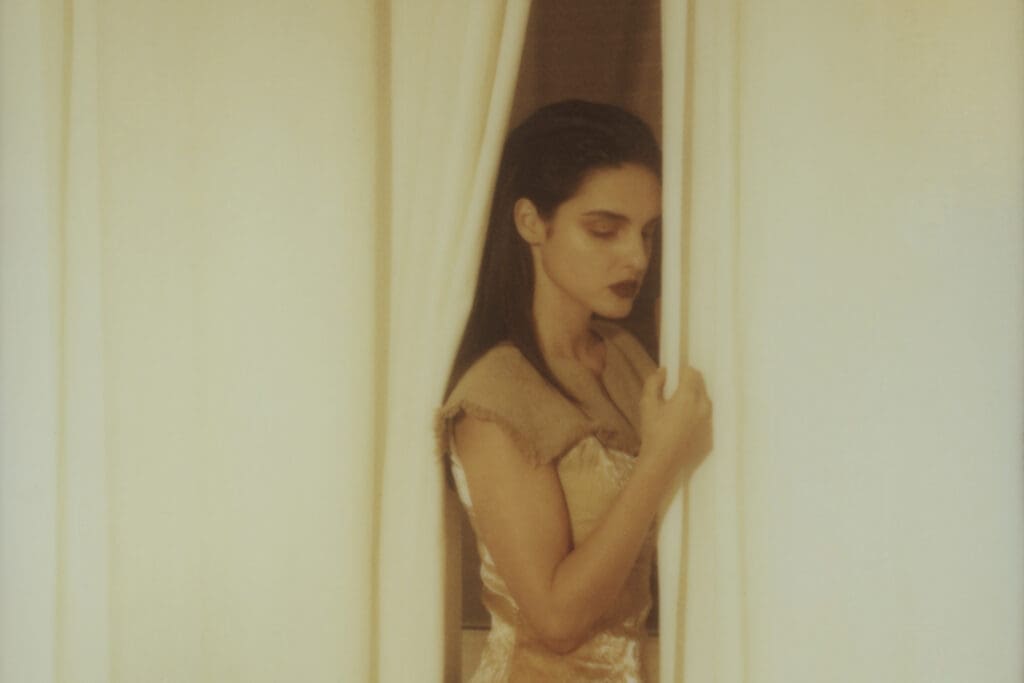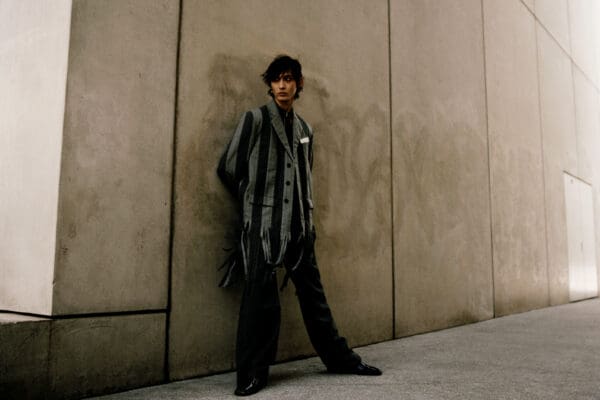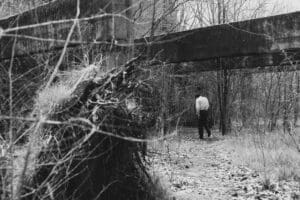by ANTONIO FIAN
illustrator DANIEL EGNÉUS
ISSUE IV
Accident
Driving down a riverside road, we became witnesses to an accident. A car driving ahead of us lost control, overturned and crashed into an embankment at full force. We pulled in at once and hurried over. A young woman was already busy giving first aid to the severely injured driver. He had been hurled out of the vehicle then hit by a piece of the wreckage; a strip of fender had split off and shot through his lower back with such momentum that a sliver of metal was sticking out of his belly. The metal was not smooth, however, there were razor-sharp barbs along the edge where it had torn away. Despite this, the woman wanted to pull it out of the wound. She had undressed the man, and was trying to separate his body from the piece of metal, using an iron rod positioned around his tailbone to lever him up. It must have been causing him excruciating pain (his spine seemed to be broken too, judging by the unnatural way his back sagged) because as the woman lifted his body higher, she drove the barbs deeper into his genitals. We shouted to her to stop, but she would not be deterred. And when he wasn’t howling in pain the man also insisted she carry on: “Keep going, keep going, keep on trying!” he yelled each time she failed to separate his body from the scrap of wreckage.
“This isn’t working,” she gasped finally and threw the iron rod aside, exhausted. “I need to use the jack. Quick, get me the jack out of the trunk.” And we rushed to the back of the car and opened the trunk, but there was no jack to be found, only a putrid, foul smelling ox skull. The man had been intending, and this was my last thought before I woke, to go eel fishing.
Task
E. gave birth to a child which was unusually large right from the start, much too tall for a newborn baby. He had a robust constitution and at first we were pleased. He started walking and speaking early and we thought he was a child prodigy. But soon we began to find his accelerating development disturbing; now he was changing from minute to minute. His face lost its human features and became feline, at the same time his body shrank and turned black. We consulted experts (what kind of experts?) and they informed us that our child was a kobold, a sprite which comes into the world sometimes to fulfill particular tasks. Our child had been given the task of immobilizing the opposition’s best player during a soccer match the English team desperately needed to win. We attended the match and saw our child, now a complete animal, only visible to us, his parents, hanging to the player’s chest, arms slung round his neck, legs round his hips. The man was genuinely incapable of moving normally, he just stood around and never got near the ball. No one, least of all himself, could explain it. As the game ended, the creature vanished. Our child was dead.
Marriage
I was eating breakfast at a guest house on Mallorca—or some such place. Opposite me sat E. and our son’s sports teacher, who it turned out just happened to be staying in the same guest house as us and who bore no physical relation to our son’s actual sports teacher except that he was an attractive young man. We talked politics and discussed the follies of the current Austrian government—it was 2001—although that is neither here nor there. I spoke the most, while knocking back the alcohol (I was already drinking at breakfast!), getting overexcited about the continual cover-up of real scandals with orchestrated scandals (as I put it), over the genuine, total escalation soon to come, which due to the alleged, supposed escalations and to the resultant alleged, supposed de-escalations in particular, would inevitably occur. The horrors in store, I cried out. I heard myself speaking louder and louder and saw myself drinking faster and faster and saw, more to the point, that while I was delivering an in-depth analysis of the state of society, the two people sitting opposite me, who I had only just introduced to each other, had begun exchanging erotic gestures as if long since intimate, then, continuing to nod in agreement with me, sometimes even adding a “damn right!” or a “sad but true!” slipped gradually towards and then into each other, and how, while I, desperate, cried that we would at best be able to recognize the horrors in store but not prevent them, E., desperate, it seemed to me, attempted to tell me that we would at most be able to prevent them, but never to recognize them.
Blue
In front of us—there were many of us this time—stood a child with real blue hair, his back to us. The child’s hair was sparse, thinning, his head full of bald patches. We stood in amazement at this unbelievable sight, felt sorry for the child and admired him at the same time (he was sick, for sure, but what an unusual sickness!). We continually took strands of his hair in our hands and tested them, rubbing them between thumb and forefinger, discussing how it felt. The child stood in silence, let it all pass over him. We never saw his face, only his neck, gleaming white against the blue.
Grave
Either as a correspondent or commissioned to write a travelogue, I found myself in a city by the sea, in a country recently ravaged by civil war, where minor skirmishes were still on the cards. I had been staying in this city for weeks, so long that my parents had taken the opportunity to visit me there. I guided them around, showing them the sights, the theaters of war. It was very time-consuming as my father was disabled, only able to walk with the aid of crutches. For several hours we walked along the promenade which had once, I was told, been peopled by tourists throughout every season. Now, aside from a few soldiers standing guard, it lay abandoned. Only a few of the cafés were open. The facades of the grand old hotels were sprinkled with bullet holes. Many of the buildings were ruins or had been razed flat to the ground. In order not to walk the entire way back, at the end of the promenade we took a short cut, a narrow footpath over a sand dune, strewn with litter and covered with tufts of sun-burnt grass, which my father found very difficult to negotiate. When we finally reached the highest point—the city centre was already spread out beneath us—I turned round once more, glad to have got this struggle out of the way, and noticed only then the simple wooden cross at the side of the path, which we had paid no heed to as we passed. “Oh and by the way,” I said, trying to sound as casual as possible, “here is the grave. I almost forgot to show you.” And everything I had suppressed rose up within me: our daughter had also visited me recently. Our daughter who we had so loved, who we were proud of and who, soon after she arrived, fell sick with a rare virus and died. And because there was a danger of the disease spreading, I had been forced to bury her here in this dead city by the sea. My legs gave way and I collapsed, crying, but then woke immediately. I have never been so glad to be allowed to leave a dream.
Expert
I had laid all out the ground work necessary to seduce an acquaintance from S. into having sex with me. We had met in a café, where we had drunk several glasses of wine and had a long, delightful conversation. The ground work was so extensive that my long-deceased grandmother had been brought back to life and happened to own a swimming bath in Radenthein to which I now invited my acquaintance “on an impulse” as I put it (I still had an hour and a half, then I had to give a private lesson). She agreed, and, having picked up the keys from my grandmother, we drove to Radenthein. I had hoped we would start making out in the changing room, but although this was a private pool men and women had to go through separate entrances. I undressed in a rush (an hour and a half was not such a long time) and walked to the pool where my acquaintance was already waiting for me, naked, beautiful and standing up to her hips in the water. I waved to her, to attract her attention, but she had already noticed me and turned to a young woman close to her (for a private swimming bath, I now realized, it was very busy; twenty or thirty other bathers were splashing around in it, some alone, some in groups, some naked, some in swimming costumes) and said “here comes the pig.” She said this so loud I couldn’t avoid hearing it and I went over to her and asked why she had just insulted me. She was amazed that I was so upset. I must have got her completely wrong; by “pig” she did not mean me but my stomach. It could not be denied, she said, that since I had quit smoking my stomach had grown. For some time now I had been sporting a substantial paunch and—which was hilarious!—it always looked different (but wasn’t she seeing it for the first time?), first of all like a dog, then like a sheep, now, as she had said, like a pig. I calmed down again as soon as she began to explain herself and, getting hornier every moment, stepped up behind her and began kissing her neck and fondling her breasts. I was just about to insert my genitals into hers when she unwound herself from my embrace and said I shouldn’t be so impatient, we had an hour and a half and she needed to finish a few jobs she had just agreed to do, and it transpired that the other bathers were also here because of her—not to have sex with her of course, but because she was an expert in a particularly complicated, antiquated embroidery technique. She was one of the last remaining experts in epigram embroidery and now one bather after another came to her to have highly complex embroidery work executed. While I grew hornier and hornier by the second, waiting for the moment of intercourse, she assured me over her shoulder that we still had an hour and a half, all the while stitching “pear juice, nut bush, pinprick” or “must not have not” and other epigrams, all of which remained a total mystery to me. Soon I couldn’t stand the sight of the embroidery or the faces of the happy customers. I gave her a friendly reminder to hurry up (because it was clear she was not doing all this as a way of turning me down; she seemed to be looking forward to the sex too) but she saw no reason to hurry. “We still have an hour and a half,” she said again and again, and to my horror I realized she was right. Time had stopped! She would continue to embroider, epigram after epigram (more bathers were already entering the changing rooms), and there would always be an hour and a half left. Neither my lesson nor the act of sexual intercourse would ever take place, only epigram after epigram after epigram after epigram, with no chance of escape except to wake up, unsatisfied.
Rescue
I fell into a bog and got stuck. I called for help and a small child with an earnest expression appeared and held his hand out to me. I knew it was impossible he could possess the strength needed to help me out, and that there was a much greater danger he would land up in the same situation I was in. For a long time I considered what to do, then, suddenly I began to sink, reached for his hand, and woke up.
translated from the German by
Steph Morris


